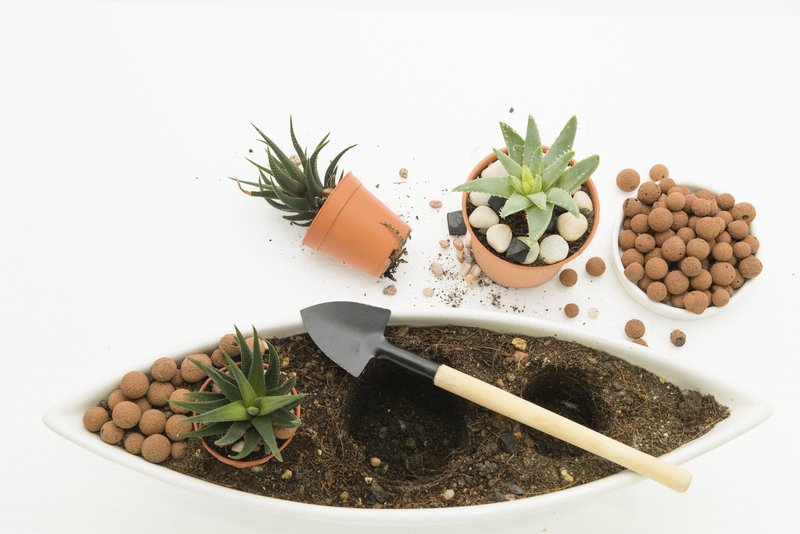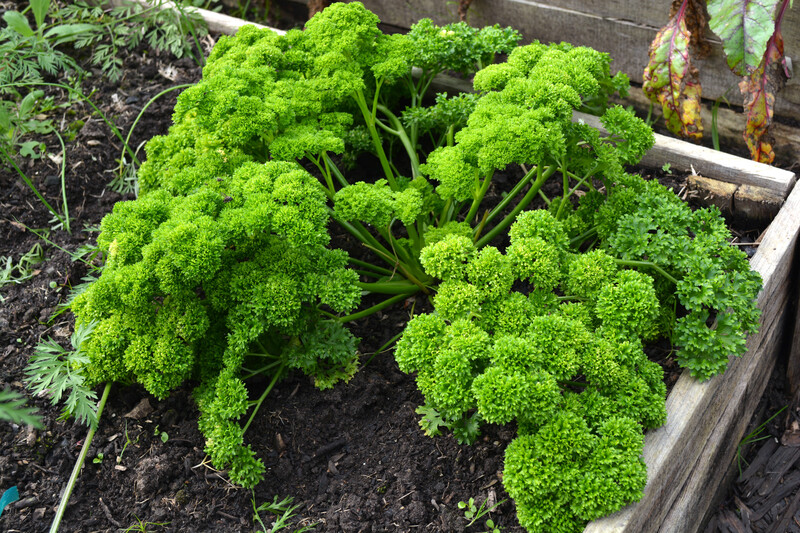Start Planting Successfully with These 9 Essential Gardening Tips
Posted on 28/05/2025
Start Planting Successfully with These 9 Essential Gardening Tips
Dreaming of lush foliage, vibrant blooms, and a bountiful vegetable harvest? Starting your garden journey can be incredibly rewarding, but it requires the right knowledge and a bit of patience. Whether you're a beginner looking to learn how to plant a garden or an experienced green thumb seeking to refine your techniques, this comprehensive guide will help you start planting successfully. Use these 9 vital gardening strategies to ensure your plants thrive--season after season!
1. Understand Your Growing Zone
Before sowing a single seed, know your garden's climate zone. Each region has unique temperature patterns, frost dates, and sunlight hours that will directly impact the success of your plantings. Use the USDA Hardiness Zone Map (or your country's equivalent) to determine which flowers, shrubs, vegetables, and herbs are best suited for your locale.
- Check LOCAL planting guides for recommendations.
- Seek advice from neighboring gardeners or local nurseries.
- Remember, planting according to your zone boosts survival rates and productivity.

2. Select the Right Location
Where you plant is just as important as what you plant. Choose garden spots that receive appropriate sunlight (full sun, partial shade, or full shade) depending on your chosen crops. *Observe your yard at different times of day to note sun patterns* — many vegetables and flowers require a minimum of 6 hours of direct sunlight.
- Ensure good air circulation to reduce disease risk.
- Avoid low-lying, overly wet areas where water may pool.
- Consider proximity to water sources for easy irrigation.
3. Prep Your Soil for Success
A thriving garden starts with healthy, well-prepared soil. Test your soil's pH and nutrient levels using affordable kits or services offered by local agricultural agencies. Most plants prefer a balanced soil, but some (like blueberries) have special requirements.
- Remove weeds, rocks, and debris.
- Incorporate organic matter: compost, aged manure, or peat moss improve texture and fertility.
- Top up your beds annually for the best planting results.
- *Mulch* to retain moisture, suppress weeds, and regulate temperature.
4. Choose High-Quality Seeds and Plants
Not all seeds or seedlings are equal! Purchase from reputable sources to ensure viable, disease-free plants and better germination rates. For the beginner gardener, select easy-to-grow varieties that match your climate and lifestyle.
- Read seed packets or tags carefully for maturity dates and spacing suggestions.
- Transplants can give you a head start on the season.
- Practice *crop rotation* to avoid soil depletion and pest buildup.
5. Master Your Planting Technique
Planting is more than just digging holes! Follow best practices for depth, spacing, and timing as specified on plant labels or seed packets. Proper technique supports healthy root growth and reduces competition for water and nutrients.
- Make holes twice as wide as the root ball, but no deeper.
- Gently loosen tangled roots before placing plants in the ground.
- Water after planting to help roots settle and remove air pockets.
6. Water Wisely and Efficiently
Consistent, deep watering encourages strong root development and resilience against heat or drought. Avoid frequent, shallow sprinklings, which can promote weak roots and disease.
- Morning is the best time to water.
- Soaker hoses or drip irrigation minimize evaporation and keep foliage dry.
- Mulch helps retain soil moisture so you water less often.
7. Feed Your Garden Regularly
Fertilization is key to lush, productive plants. Feed using balanced fertilizers, slow-release granules, or organic options like compost tea. Each plant has unique nutritional needs — vegetables may require more nitrogen, while blooming flowers benefit from phosphorus.
- Check for yellowing leaves or stunted growth as signs of nutrient deficiency.
- Follow label instructions for application rates and frequency.
- Over-fertilizing can burn roots – err on the side of caution.
8. Stay Ahead of Pests and Diseases
Even the best-tended gardens attract pests and pathogens. Early intervention is crucial to minimize damage and keep your planting efforts on track.
- Inspect plants regularly for holes, spots, or unusual growth.
- Encourage beneficial insects like ladybugs and lacewings.
- Practice crop rotation, companion planting, and use barriers for organic control.
- Apply organic sprays or horticultural soaps as needed.
9. Learn as You Grow
Every season brings new challenges and discoveries. Keep a garden journal to document your successes and setbacks so you can refine your gardening techniques year after year.
- Take photos to track plant progress and identify issues.
- Note weather changes, planting dates, and harvest times.
- Celebrate your achievements, big and small!
Bonus Gardening Advice: Cultivate Consistency and Joy
Gardening is an ongoing learning process, and even the most experienced gardeners make mistakes. The most important tip of all? Enjoy the journey. Regular care, observation, and appreciation for nature's rhythms will yield not just healthy plants, but a happier, more peaceful you.
- Join local gardening clubs or online communities.
- Attend workshops and read gardening books.
- Share produce and flowers with neighbors and friends!

Conclusion: Begin Planting with Confidence
Everyone can succeed in the garden with the right approach. By following these 9 essential gardening tips and nurturing your plot with patience, you'll enjoy healthy, thriving plants that bring beauty and bounty to your home. Remember, gardening is about growth--both for your plants and for your own experience. So grab your gloves, embrace these smart gardening techniques, and start planting successfully today!
Frequently Asked Questions
- When is the best time to start planting a garden?
It depends on your climate zone and plant type. Most gardens begin in early spring after the last frost, but some crops can be planted in fall or even winter in mild climates. - What are the most important gardening tools for beginners?
Essential tools include a trowel, garden fork, gloves, watering can or hose, pruners, and a rake. - How can I make gardening easier as a beginner?
Start small, choose easy-to-grow plants, and follow the above planting guidelines for the best results.
Ready to turn your patch of earth into paradise? Unlock a world of color, flavor, and inspiration--one seed at a time--with these fundamental gardening strategies!
Further Reading
Latest Posts
Garden Seating Solutions for Every Space
Securing Your Garden's Vitality Through Winter
Invite Beauty with 9 Ground Cover Plants for Your UK Garden

